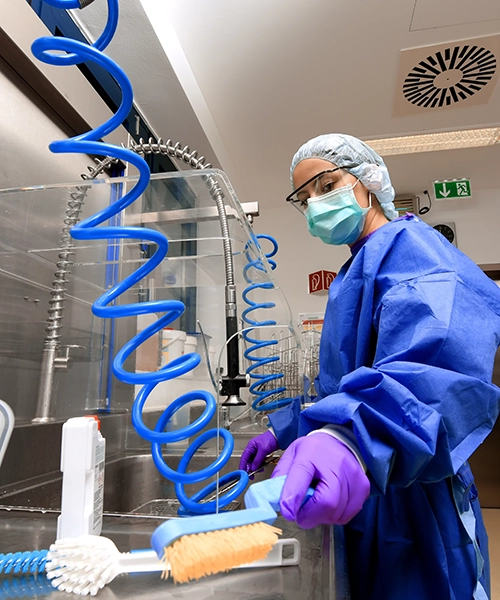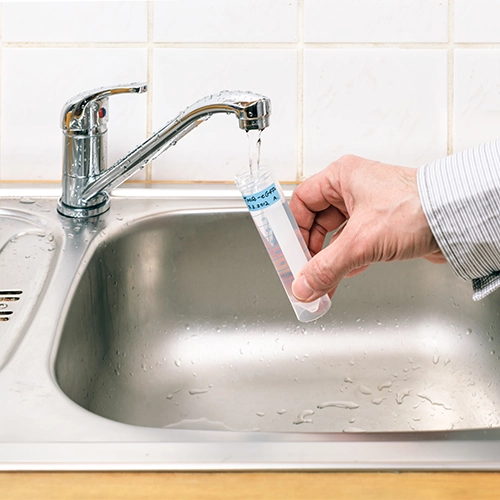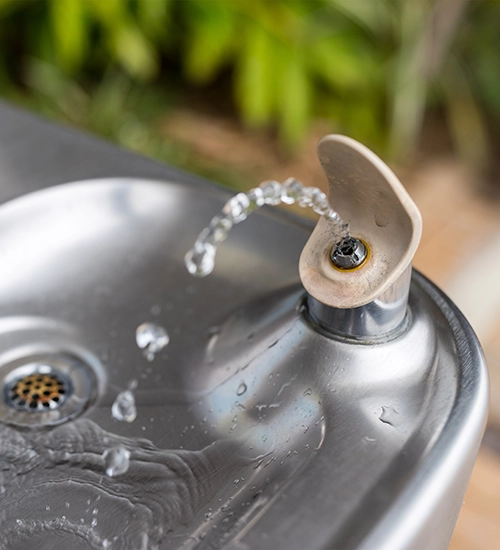What Is Legionella?
Legionella is a genus of bacteria. It can cause Legionnaires’ disease, a severe form of pneumonia.
It occurs naturally in freshwater places like lakes and streams. This bacteria grows well in warm water sources. It can also thrive in human-made water systems, such as cooling towers, hot water tanks, and plumbing systems.

Where Is Legionella Found?
Researchers find Legionella bacteria in freshwater places like lakes and streams. They prefer warmer water over cooler water.
Legionella growth can be a health risk when they grow in human-made water systems. These systems include plumbing, storage tanks, cooling towers, decorative fountains, hot tubs, and manufacturing equipment. Legionella does not spread from person to person. People usually get it by breathing in droplets in mist or vapor that have the bacteria.
Why Legionella Testing Matters
Testing for Legionella can help stop disease outbreaks. This includes Legionnaires’ disease and Pontiac fever.
It ensures safe water systems and free from harmful bacteria. Early detection of Legionella bacteria helps manage risks and promotes a safer environment for building occupants. By offering comprehensive Legionella testing and analysis services, Pace ® helps clients protect public health, ensure safe water, and maintain regulatory compliance.
CONTACT US ABOUT
LEGIONELLA TESTING TODAY

How Is Legionella Regulated?
Legionella testing in water systems is essential for protecting public health and reducing organizational risk. The Centers for Medicaid and Medicare Services (CMS) has rules for healthcare facilities.
Facilities that accept Medicare and Medicaid must implement water management policies. These policies help reduce the risk of Legionella and other harmful germs. In 2022, the Joint Commission set new standards for accredited organizations. This includes hospitals and nursing care centers to tackle Legionella.
Various states have their own requirements. New York requires hospitals and healthcare facilities to monitor and control Legionella.
Whereas, New Jersey needs policies for healthcare facilities and buildings with large water systems. The CDC provides guidelines for preventing Legionnaires’ disease. OSHA has standards for workplaces with potential Legionella contamination. States may also regulate other hot spots, such as New York’s requirement for cooling tower testing to reduce increased risk.
WHO WE SERVE
Water treaters and consultants are important for keeping water systems safe. They help prevent Legionnaires' disease by testing, monitoring, and managing water quality.
Nursing homes, long-term care facilities, and hospitals must keep patients safe. They should test regularly to prevent problems.
Regular testing in hotels and resorts can help prevent outbreaks, protect guests, and maintain the establishment’s reputation.
Universities and other educational institutions should test to ensure the safety of students, staff, and visitors.
To ensure the safety of all occupants and visitors, regular testing for Legionella should be conducted in commercial buildings.
Data center water systems, such as cooling towers, can create an environment in which Legionella thrives. If you use evaporative cooling, you should test these systems regularly to prevent an outbreak.
Government buildings, including those run by the General Services Administration (GSA), should test often. This helps prevent outbreaks and keeps health rules in check. It also protects public health.

Legionella & Cruise Ships
Keep your reputation afloat by learning how to protect your passengers from Legionella and the risk of an outbreak.
Get essential resources and guidance from our experts.
Contact the Pace® Legionella Outbreak Response Team at:
Legionella outbreak services are essential for quickly addressing and controlling the spread of Legionella bacteria. Pace® offers emergency outbreak services 24/7.
Coordination of emergency disinfection and onsite sampling.
Conducting case investigations and laboratory services.
Available around the clock to address urgent needs.
Utilizing various methods to detect Legionella bacteria.
Water Management Planning – Waterborne Pathogens
Water management planning for waterborne pathogens ensures the safety of building occupants. You can achieve this by identifying contamination sources, assessing risks, and implementing control measures. These plans establish proper water temperatures, ensure adequate disinfection, and prevent water stagnation. This protects public health and helping organizations comply with regulations.
Businesses need water management planning to prevent Legionella. This includes CMS-affiliated healthcare facilities and certain GSA-managed properties.
Even when property managers and owners do not require it, water management planning can help them. It can reduce risks and protect their occupants. Learn More


Pace® Support for GSA PBS 1000.7A Compliance
The General Services Administration (GSA) Public Buildings Service (PBS) Order 1000.7A establishes national requirements for effectively managing and overseeing drinking water quality within GSA-managed properties. The purpose of this order is to protect the health of people in the building through water management programs.
It provides guidelines and steps to keep drinking water safe and clean. Pace® offers a comprehensive portfolio. Our services help public sector organizations adhere to the new requirements, including:
Pace® Legionella Testing Services
Pace® offers comprehensive Legionella testing and analytical services for healthcare, hospitality, manufacturing, commercial buildings, and more. Our skilled team of microbiologists and environmental scientists works together with clients. We create testing plans that fit their specific needs and follow regulations.
Learn more about our water treatment services. Visit our Legionella Testing Services page or contact us directly.